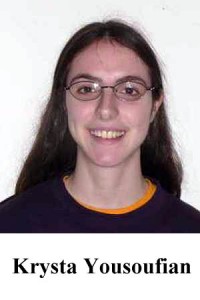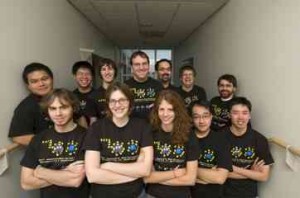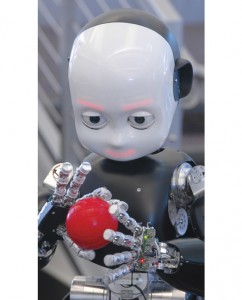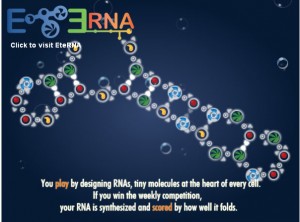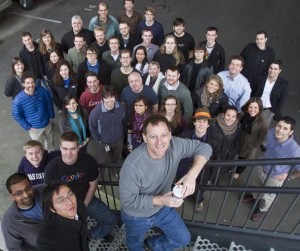
"Former UW professor Brian Bershad, front center, has hired dozens of former students for Google, his new employer. He says he'd hire many more if the university could keep producing enough, but the state budget crisis may prevent that."
The Seattle Times reports on the loss of opportunity represented by University of Washington budget cuts.
“Consider the situation faced by Brian Bershad, a former UW computer science professor who is now the engineering site director for Google Seattle/Kirkland. He’d like to hire more UW computer scientists and computer engineers — a lot more.
“‘If the UW could produce 1,000 amazing engineers every year,’ Bershad said, ‘we’d find a way to hire them.’
“But the university’s computer science program already turns away hundreds of smart kids who apply annually. Future budget cutbacks could mean turning away still more …
“Bershad and others say the reductions have another, hidden cost: They erase opportunities for Washington students, meaning local kids won’t receive the training they need to land a job at Google — or with a local startup that one day could become the Next Big Thing.”
Read this excellent article here.
The Stranger has a similar, although less polite, take on the subject, here.
And UW asks “What is a College Education Worth … for the Citizens, Community, Employers, State and Students” here. Read more →
![]() Xconomy Boston reports on the Seattle-area innovation ecosystem, noting UW CSE, Impinj, Madrona Venture Group, etc.
Xconomy Boston reports on the Seattle-area innovation ecosystem, noting UW CSE, Impinj, Madrona Venture Group, etc.


